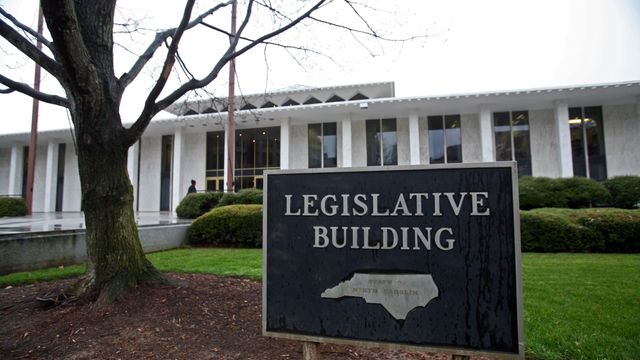NC lawmakers have power to choose winner in contested presidential race
North Carolina is no stranger to election controversy. In recent elections,we've seen controversy with absentee ballots and problems at polling sites. This year, there have already legal challenges over deadlines for mail-in ballots.
Posted — UpdatedPresident Donald Trump has ramped up accusations of possible election fraud in recent weeks, putting the integrity of the election under fire even before the first vote is counted.
"I believe that all the rhetoric nationally and in North Carolina is concerning," said Michael Weisel, a Raleigh attorney and elections law specialist.
But if there's any controversy over the results of the presidential election, a little-known state law gives lawmakers the power to choose the state's Electoral College representatives – effectively picking the winner of North Carolina's 15 electoral votes.
"This will be extremely interesting if it comes to it," said Robert Joyce, the Charles Edwin Hinsdale Professor of Public Law and Government at the University of North Carolina at Chapel Hill's School of Government. "This puts considerable power in the hands of the General Assembly."
But neither Joyce nor Weisel think that statute will be invoked this year.
For the General Assembly to assume that power, lawmakers must come into special session, which would require either a request by the governor or a three-fifths vote of both the House and the Senate.
While Republicans have majorities in both chambers, they lack the required three-fifths majority, which would mean they would need the support of legislative Democrats or a call from Democratic Gov. Roy Cooper – all with a partisan result on the line.
Weisel pointed out that, after the legislature, the law gives the governor authority to appoint presidential electors. He also noted the law requires the legislature or governor to follow "their best judgment of the will of the electorate" in choosing electors.
"A scenario of one body just going ahead and willy-nilly saying. 'We’re going to choose our own electors,' North Carolina law does not permit that to occur," he said.
Voters, candidates and the media need patience to let the system work, Weisel said.
"All of voters in North Carolina should have a fundamental faith in North Carolina’s election process," he said.
"There’s an old election saw among elections administrators: Who ever wins, may it not be close," Joyce added.
• Credits
Copyright 2024 by Capitol Broadcasting Company. All rights reserved. This material may not be published, broadcast, rewritten or redistributed.





